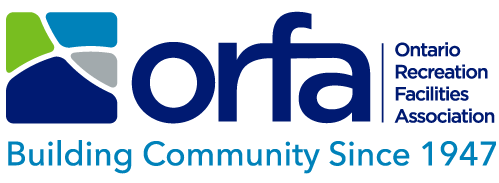- ORFA Home
- Resource Centre
- Technical Corner
- What Hockey Canada Can Learn from USA Hockey
Technical Corner
What Hockey Canada Can Learn from U.S.A. Hockey
January 3, 2023
More than 25-years ago, the ORFA began to focus on how we might make the ice industry more of a profession rather than just a job. This vision was driven by our members who craved respect and recognition for the necessary skill sets that were required to operate, manage, and administer all forms of recreational infrastructure. Our roots were and are connected to ice hockey based on the original vision and commitment by the Ontario Arenas Association (OAA) Board of Directors and membership more than 75-years ago. The investment by the Board of Directors in meeting the wants and needs of the membership of the time to raise the recognition and value of properly trained recreational staff in all sectors has resulted in our industry leadership at many levels. We are not done. There is a way to go yet!
As the ORFA invested in this recognition goal, U.S.A. Hockey was experiencing its own challenges. The NHL had significantly expanded into the U.S. in an attempt to grow the fan base. Hockey in Canada and some northern U.S. states had the sport in the local DNA. In other states, it was not even a note on the sports pages. Ice sheets in Canada were primarily municipal owned and operated with some post-secondary facilities, native community operations and private ice rinks. While in the U.S., it was primarily private business, followed by post-secondary, municipal and native operations. Skating ice in the U.S. was primarily operated as a profit centered business. If it cost $200 an hour to operate an ice sheet, they charged $250. However, the downside was that they guarded operational approaches as state secrets. Having great ice and quality operations meant increased ice sales. Why would Coke want to share their formula with Pepsi? In Canada, revenue was not a priority, we just wanted the simplest approach and were eager to share our experiences. U.S.A. Hockey needed some of this formula to grow their game. Part of this growth resulted in a training and licensing partnership with ORFA.
If you follow the ORFA history, you are well aware of our partnership with Serving The American Rinks (STAR) – now the U.S. Ice Rink Association (USIRA). USIRA is an independent organization partially funded by U.S.A. Hockey and U.S. Figure Skating Association to assist rink operators and managers in safe and efficient operations. They share information and best practices no different than ORFA. What must be added to this plan are the other investments being made in tandem with the facility improvement focus. U.S.A. Hockey was also investing in building the game from the grass roots up. They invested along with the NHL in introducing the game to young people that knew nothing about it. They started with “road hockey”, invested in “in-line hockey” programs. They embraced the value that females brought to the sport and nurtured it. Today, there is a recognizable return on investment.
Hockey Canada is dealing with some significant issues that is going to take time to correct. We cannot look in the rearview mirror forever, but we must not lose where we are coming from. Our game is in crisis with many of our facilities in the last stage of their lifecycle. Our buildings need ice hockey and ice hockey needs our buildings. The future will require all levels of government to invest in infrastructure as well as new ways of conducting business. I believe that we can take a few pages from the U.S.A. Hockey playbook in this regard. We all need to partner and develop a plan on how we can reset and focus on the future. There is no one solution that will fix this. It will take a spirit of partnership that is open to fresh and new ideas while using past experiences. First, we may have to adopt the approach that Quincy Jones did when he brought 46 of the biggest stars in the world together. As the room filled with such a mind-boggling array of talent, each artist was famously greeted with the sign that instructed them, in no uncertain terms, to “check your egos at the door.”
The ORFA is most prepared to invest if called upon. Let’s see what the future holds?
Comments and/or Questions may be directed to Terry Piche, CRFP, CIT and Director, Training and Research Development, Ontario Recreation Facilities Association
|
Note: The publisher, (Author(s)/General Editor(s)/Licensor(s)) and every person involved in the creation of this communication shall not be liable for any loss, injury, claim, liability or damage of any kind resulting from the use of or reliance on any information or material contained in this communication. While every effort has been made to ensure the accuracy of the contents of this communication, it is intended for information purposes only. When creating this communication, none of the publisher, the (Author(s)/General Editor(s)/Licensor(s)) or contributors were engaged in rendering legal or other professional advice. This communication should not be considered or relied upon as if it were such advice. If legal advice or expert assistance is required, the services of a competent professional should be sought and retained. The publisher and every person involved in the creation of this communication disclaim all liability in respect of the results of the any actions taken in reliance upon information contained in this communication and for any errors or omissions in the works. They expressly disclaim liability to any user of the work. |
